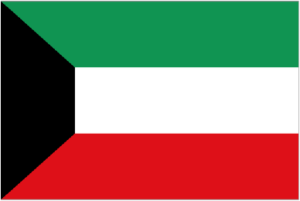 [Riyadh Al Balushi, Link (CC-BY-SA)] Kuwait passed a new Copyright and Neighbouring rights Law in June 2016. This is new law replaces the 1999 copyright law – the first copyright law that Kuwait ever had. This new law is probably motivated by Kuwait’s accession to the Berne Convention in 2014.
[Riyadh Al Balushi, Link (CC-BY-SA)] Kuwait passed a new Copyright and Neighbouring rights Law in June 2016. This is new law replaces the 1999 copyright law – the first copyright law that Kuwait ever had. This new law is probably motivated by Kuwait’s accession to the Berne Convention in 2014.
The new Kuwaiti Copyright Law of 2016 does not give authors drastically more rights than what they used to. Both the 1999 and the 2016 laws offer a broadly worded economic rights section that does NOT restrict economic rights to specific activities such as reproducing, adapting, performing, etc, but instead widely state that the author has the right to permit and prohibit the use and exploitation of his works and provide reproduction, adaptation, performance, and other rights as examples of the rights that authors have over their works. This obviously goes beyond what is required by the Berne Convention and all other copyright treaties.
In regard to moral rights, the 2016 law retains the paternity right, the integrity right, and the right of divulgation, but it also introduces the right of withdrawal as a moral right to authors that enables them to demand that their works are withdrawn from the market.
Kuwait has also retained the copyright term of 50pma and the equivalent for all published works. No changes have also been made to the term of protection neighbouring rights: performers & sound recorders rights are protected for 50 years from the performance or recording, while broadcasters rights are protected for 20 years from the broadcast.
The most interesting change in the Kuwaiti Copyright Law of 2016 is Article 29 of copyright exceptions. In the same open formulation used for economic rights, exceptions are defined using an open formulation that says that any use that does not conflict with the normal exploitation of the work and does not prejudice the legitimate interests of the author is not considered an infringement, and then goes on to provide examples of uses that are not considered an infringement. This means that Kuwaiti Copyright law provides an open exception system in which any use may be permitted as long as it satisfies the requirements of Article 29. This is not the same as fair use in US copyright law because there are no factors to be considered to determine the permissibility of the use. The formulation used in Article 29 might be in violation of the Berne Convention because it makes no consideration for the first step of the 3-test to limit the exceptions to ‘special cases’. Article 29 also provides 20 examples of permitted uses that cover numerous uses from private use and quotation to software backup and conversion of accessible copies for the blind. This list is extremely interesting and includes exceptions that I have not seen anywhere else. In addition to Article 29, there are additional exceptions for the press and a system of compulsory licensing for non-commercial educational uses, libraries, and archives.
The 2016 law also introduces a new system for the collective management of rights which was not available before.
The penalties for copyright infringement have been immensely increased. The maximum fine for copyright infringement was 500KD in 1999 and now has been increased to 50,000KD, i.e. a hundred times more! In regard to the circumvention of protection measures, the penalty has been increased from 500KD to a maximum of 100,000KD! Prison sentences got increased from a maximum of 1 year to a maximum of 2 years for these two categories of offenders.
It is also interesting to note that Kuwait now extends protection to authors associated with the member states of the Berne Convention and the WTO. The old law had a bizarre scope that extended to the nationals of the member states of WIPO which wasn’t actually relevant for any copyright treaty.
You can read the full Law in Arabic here.
Photo credits: “Kuwait City” by Meshal Alawadhi – CC BY-NC 2.0




